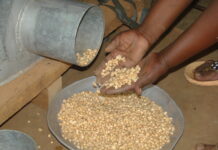
In this scenario we look at whether the actions of a family member are relevant to the conduct of a senior politician.
You are a political news editor working for a large public-service broadcaster. Parliament is debating proposed legislation that would relax laws on recreational drugs and decriminalise possession of small quantities of cannabis for personal use.
This debate is being covered in depth by the media.
A government minister is known for taking a tough stance on such issues. Your reporting team has been covering proceedings and has interviewed him several times.
A story breaks on the news wires claiming that the minister’s adult son has been questioned by police following a drugs raid.
The son is a 24-year-old teacher, working in a school for pupils with special needs. He no longer lives with his parents. He hasn’t featured in the news before.
The same news wires are received by all the national newspapers and broadcasters.
You suspect that some newspapers will go big on the story, and that it will go viral on social media.
How should you respond?
Should you:
- Assign a reporter to check the details of the wires story with police.
- Cover the story as set out in the wires report.
- Continue to cover the debate in parliament, but ignore the information about the son because he is not a public figure.
- Contact the government minister for a comment.
- Contact the son for his version of events.
- Contact the school where he works.
- Contact campaigners on both sides of the drugs laws argument.
The public interest test
This is one of those stories that is likely to generate great excitement in some news outlets.
They will probably draw comparisons between the son’s behaviour and the minister’s stance on drugs.
Once the story is out, radio and TV chat-show hosts will probably discuss the current legislation going through parliament, mention that the minister’s son has been questioned, and conduct interviews in the street along with phone-ins to try to gauge public opinion.
But is there public interest justification for doing the story in the next news bulletin?
The son is not a public figure. He is a private individual. He hasn’t made any public comments linking him to the current drug debate.
The fact that he has been questioned by police about alleged recreational drug use is probably interesting to the public, but does that mean that it’s in the public interest for you to investigate further?
Would you assign a reporter to dig deeper every time a 24-year-old is questioned by police about drugs?
Or does the fact that this is the minister’s son make a difference?
Conclusion
This story is of interest only because of the relationship between the arrested son and his father, the minister currently discussing legislation regarding drugs.
But it has no public interest purpose. See our module ‘Journalism and the public interest’ – link at the bottom of this scenario.
As a political news editor you would probably want to assign a reporter to talk to the police to find out whether what was contained in the news wires was accurate, but that would be for background research purposes only.
And such background material will help you explain your decision to your line manager, who will no doubt ask you about the story when it breaks on other outlets.
While you might apply the public interest test to your journalism, others might not apply it to theirs.
In such cases, once the story is in the public domain, it could develop, with new angles emerging that change the story, along with people adding their comments and opinions.
You could then come under increasing pressure to cover the story, not just because everyone else is, but because it has moved on from the original facts of the son being questioned.
So the story should be monitored in other media, but picked up with respect to the son only if a public interest angle emerges contingent on that relationship.
In such cases you will need to refer up and talk to senior editorial colleagues.

This text presents a classic ethical dilemma faced by journalists: balancing the public’s right to know with an individual’s right to privacy, particularly when that individual is related to a public figure. Here’s an analysis, added value, and summary of its importance:
Analysis:
- The core conflict:
- The story hinges on the relationship between a private individual (the son) and a public figure (the minister).
- The public interest is questioned: Does the son’s alleged involvement in drugs, solely because of his father’s position, warrant news coverage?
- The text highlights the potential for sensationalism and “going viral,” driven by the connection to the minister’s stance on drug policy.
- Ethical considerations:
- Public interest vs. private life: The text emphasises the importance of the “public interest test,” questioning whether mere public curiosity justifies invading a private individual’s life.
- Fairness and proportionality: It raises the point that routinely reporting on every 24-year-old questioned by police would be disproportionate, suggesting the minister’s relationship is the sole driver of the story.
- Potential for misinformation: The text acknowledges the rapid spread of information (and misinformation) through news wires and social media, highlighting the need for verification.
- Practical responses:
- The text suggests a measured approach:
- Verification of the news wire information with the police for background purposes.
- Monitoring other media outlets for developments.
- Escalating the issue to senior editorial staff.
- Delaying reporting on the son until a true public interest angle presents itself.
- The text suggests a measured approach:
Issues:
- Contextualisation:
- The scenario is set against the backdrop of a significant political debate, adding layers of complexity. The timing is important.
- The minister’s “tough stance” creates a potential narrative of hypocrisy, which can be a powerful driver of public interest.
- Media landscape:
- The text acknowledges the competitive media environment, where outlets may prioritise sensationalism over ethical considerations.
- It highlights the impact of social media in amplifying stories and shaping public perception.
- The importance of editorial judgement:
- The text underscores the crucial role of editors in making informed decisions about what constitutes newsworthy information.
- It shows that just because information exists, does not mean it has to be published.
- Legal considerations:
- While not explicitly stated, the text implicitly touches on potential legal issues like defamation and privacy laws.
Summary:
This scenario highlights the critical importance of:
- Upholding ethical standards: Journalists must prioritise the public interest over sensationalism and respect individual privacy.
- Applying the public interest test: This test should be rigorously applied to determine whether a story warrants publication, especially when it involves private individuals.
- Verification and accuracy: In the age of rapid information dissemination, verifying facts is paramount to prevent the spread of misinformation.
- Responsible reporting: Journalists have a responsibility to consider the potential consequences of their reporting, particularly on individuals and their families.
- Editorial leadership: Senior editors must provide guidance and support to their teams in navigating complex ethical dilemmas.
- Monitoring and adapting: News cycles change rapidly, and news organisations must be ready to adapt to new information, and the actions of other news organisations.
In essence, this scenario serves as a valuable case study for aspiring and practicing journalists, reminding them of the ethical responsibilities that come with the power to inform the public.








